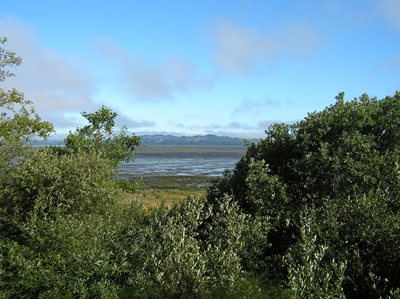Shellfish growers from Willapa-Grays Harbor Oyster Growers Association requested a permit from the state to use the pesticide imidacloprid on oyster and clam beds to control native burrowing shrimp.
After thoroughly evaluating the request, the Washington Department of Ecology has determined that the environmental harm from this neonicotinoid pesticide would be too great. Therefore, Ecology is denying the request for a permit.
“We’ve been working with this community of growers for years to move away from chemical pesticides and find a safer alternative to control burrowing shrimp,” said Ecology Director Maia Bellon. “The science around imidacloprid is rapidly evolving and we can’t ignore it. New findings make it clear that this pesticide is simply too risky and harmful to be used in Washington’s waters and estuaries.”
The body of science is expanding because of national and international concerns surrounding the use of neonicotinoid pesticides and their environmental impacts. New research points to greater impacts in land and water ecosystems than previously known.
During its environmental assessment, Ecology studied the best available science from the U.S. Environmental Protection Agency, Health Canada, and the European Food Safety Authority, along with hundreds of other new reports.
In its own environmental review, Ecology found significant, adverse, and unavoidable impacts to both sediment quality and invertebrates living in the sediments and water column.
Ecology detailed the following environmental impacts as key reasons for denying the request for a permit:
- Significant, unavoidable impacts to sediment quality and benthic invertebrates.
- Negative impacts to juvenile worms and crustaceans in areas treated with imidacloprid and nearby areas covered by incoming tides.
- Negative impacts to fish and birds caused by killing sources of food and disrupting the food web.
- Concern about non-lethal impacts to invertebrates in the water column and sediment.
- A risk of impacts from imidacloprid even at low concentrations.
- Increased uncertainty about long-term, non-lethal, and cumulative impacts.
Ecology conservatively estimates for every one acre of tideland that is chemically treated, imidacloprid spreads out and impacts five acres. Even at low concentrations, it has significant impacts on the environment.
Based on the research and data, Ecology determined that the oyster growers’ proposal cannot meet the legal requirements of the Sediment Management Standards and Clean Water Act that protect sediment and water quality.
Ecology compiled its research, findings, and public comments into a Supplemental Environmental Impact Statement. The results of this environmental assessment informed Ecology’s decision to deny the oyster growers’ request.
Ecology’s decision is subject to a public comment period before it is final. The public may submit comments on this decision through May 14, 2018. Once final, this decision may be appealed to the Washington State Pollution Control Hearings Board within 30 days.
Learn more about this proposal, Ecology’s environmental review, and the decision at www.ecology.wa.gov/burrowingshrimp.


